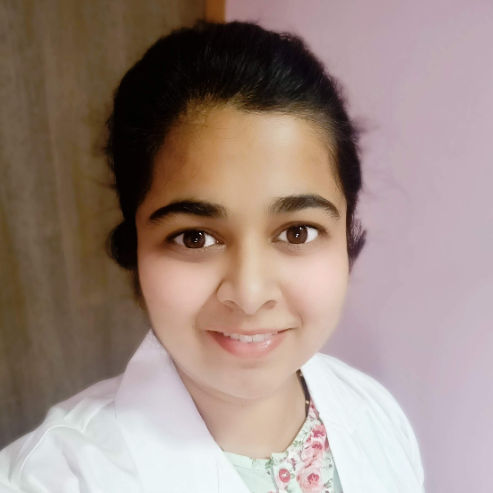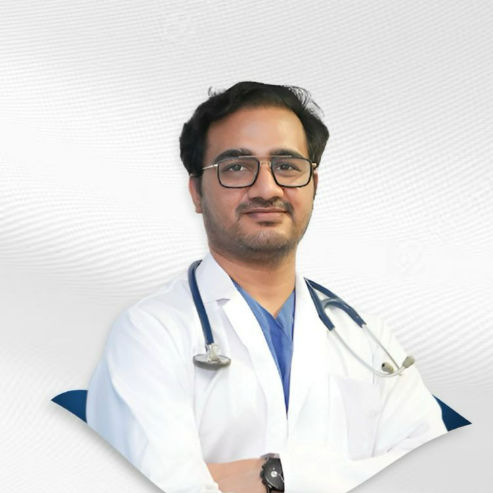Myocardial Infarction Treatment Overview
Learn about the treatment options for myocardial infarction (heart attack), including emergency care, medications, and surgical procedures. Understand how timely intervention can save lives and improve recovery.

Written by Dr. Vasanthasree Nair
Reviewed by Dr. D Bhanu Prakash MBBS, AFIH, Advanced certificate in critical care medicine, Fellowship in critical care medicine
Last updated on 22nd Aug, 2025

A myocardial infarction (MI), commonly known as a heart attack, is a serious medical emergency that occurs when blood flow to a part of the heart is blocked, leading to damage or death of heart muscle tissue. Timely treatment is crucial to prevent complications and improve recovery.
If you or a loved one has experienced a heart attack, understanding the treatment options can help in making informed decisions. This article explains the key aspects of myocardial infarction treatment in simple terms.
What Happens During a Myocardial Infarction?
A heart attack occurs when one or more of the coronary arteries (blood vessels supplying the heart) become blocked, usually due to a blood clot forming over a fatty plaque buildup (atherosclerosis). Without oxygen-rich blood, the affected heart muscle begins to die.
Common Symptoms of a Heart Attack
Below are the common symptoms of heart attack,
Chest pain or discomfort (pressure, squeezing, or heaviness)
Pain spreading to the arm, shoulder, neck, jaw, or back
Shortness of breath
Cold sweat, nausea, or dizziness
Fatigue or sudden weakness
Note: Some people, especially women and diabetics, may experience atypical symptoms like indigestion, extreme fatigue, or back pain.
Consult a Top Cardiologist
Immediate Treatment for Myocardial Infarction
The sooner treatment begins, the better the chances of survival and recovery. Here’s what happens in an emergency:
1. Emergency Medical Care (Call 108 or Local Emergency Number)
Aspirin: Often given immediately to prevent further clotting.
Nitroglycerin: Helps relax blood vessels and improve blood flow.
Oxygen therapy: If oxygen levels are low.
2. Restoring Blood Flow
Two main approaches are used to reopen blocked arteries:
A. Percutaneous Coronary Intervention (PCI or Angioplasty with Stent)
A thin tube (catheter) is inserted into the blocked artery.
A balloon is inflated to open the artery, and a stent (mesh tube) is placed to keep it open.
Best if done within 90 minutes of symptom onset.
B. Thrombolytic Therapy (Clot-Busting Drugs)
Used if PCI is not available within the recommended time.
Medications like streptokinase or alteplase dissolve the clot.
Must be given within 12 hours of symptoms.
3. Medications After a Heart Attack
To prevent future heart attacks, doctors may prescribe:
Blood thinners (Aspirin, Clopidogrel) – Prevent clots.
Beta-blockers (Metoprolol, Atenolol) – Reduce heart workload.
ACE inhibitors (Ramipril, Lisinopril) – Lower blood pressure and heart strain.
Statins (Atorvastatin, Rosuvastatin) – Control cholesterol.
Recovery & Rehabilitation After a Heart Attack
Recovery involves medical treatment, lifestyle changes, and cardiac rehabilitation to strengthen the heart and prevent future problems.
1. Cardiac Rehabilitation
A supervised program including exercise, education, and counseling.
Helps improve heart function, reduce stress, and adopt healthier habits.
2. Lifestyle Changes to Protect Your Heart
Quit Smoking: Smoking damages blood vessels and increases heart attack risk.
Healthy Diet: Focus on fruits, vegetables, whole grains, lean proteins, and low-fat dairy. Avoid excess salt, sugar, and fried foods.
Regular Exercise: Aim for 30 minutes of moderate activity (walking, swimming) most days (as advised by your doctor).
Manage Stress: Practice relaxation techniques like deep breathing, yoga, or meditation.
Control Blood Pressure, Cholesterol & Diabetes: Regular check-ups and medication adherence are key.
3. Warning Signs to Watch For
Even after treatment, some patients may experience:
Recurring chest pain
Severe shortness of breath
Irregular heartbeat (palpitations)
Sudden swelling in legs
If these occur, seek medical help immediately.
When to Consult a Doctor?
If you have risk factors (high BP, diabetes, obesity, family history) or have had a heart attack before, regular follow-ups are essential.
Apollo 24|7 offers expert cardiology consultations and diagnostic tests. You can:
Book an online consultation with a cardiologist.
Schedule tests like ECG, echocardiogram, or stress tests for heart health monitoring.
Early intervention saves lives!
Conclusion
A myocardial infarction is a life-threatening event, but timely treatment and healthy lifestyle changes can significantly improve recovery and quality of life. If you or someone around you experience heart attack symptoms, act fast as every minute counts!
Consult a Top Cardiologist
Consult a Top Cardiologist

Dr. Tripti Deb
Cardiologist
40 Years • MBBS, MD, DM, FACC, FESC
Hyderabad
Apollo Hospitals Jubilee Hills, Hyderabad

Dr. Zulkarnain
General Physician
2 Years • MBBS, PGDM, FFM
Bengaluru
PRESTIGE SHANTHINIKETAN - SOCIETY CLINIC, Bengaluru

Dr. Anand Ravi
General Physician
2 Years • MBBS
Bengaluru
PRESTIGE SHANTHINIKETAN - SOCIETY CLINIC, Bengaluru

Dr Nazneen Khan
Cardiologist
7 Years • M.B.B.S, M.D (MEDICINE), DrNB CARDIOLOGY
Pune
Apollo Clinic, Viman Nagar, Pune

Dr. Janjirala Seshivardhan
Cardiologist
7 Years • MBBS,DNB(GM),DM(Cardiology)
Manikonda Jagir
Apollo Clinic, Manikonda, Manikonda Jagir
_0.webp)
.webp)


